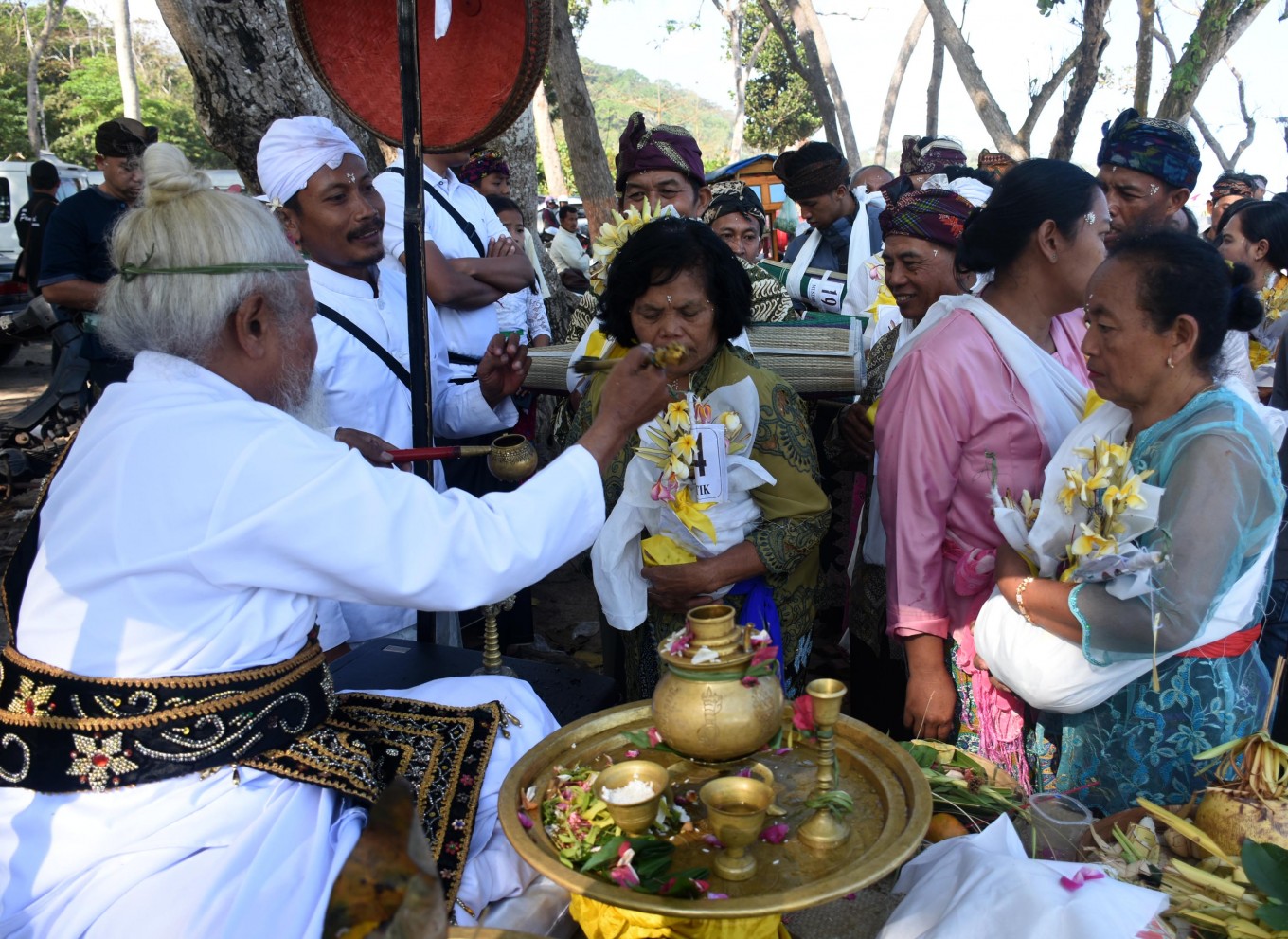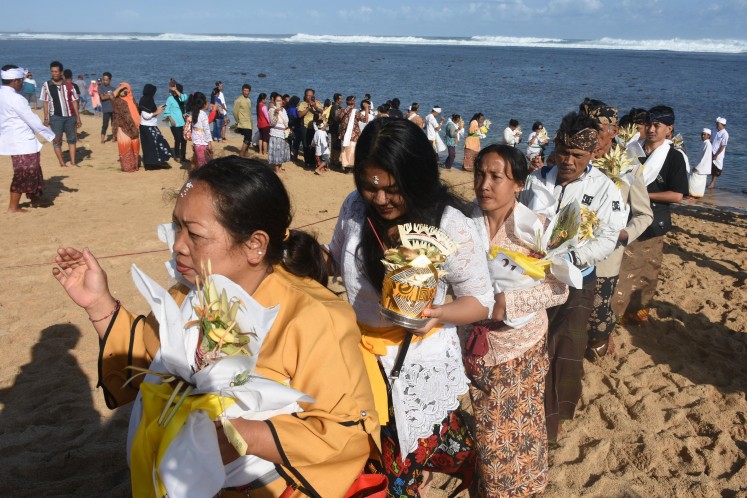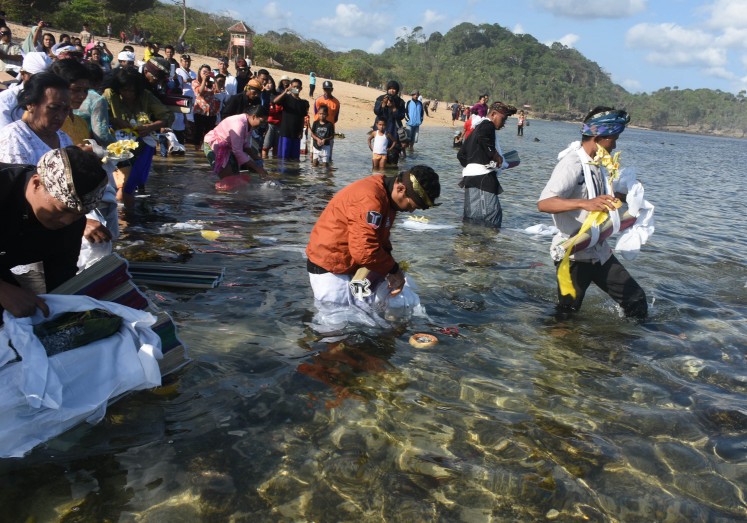Popular Reads
Top Results
Can't find what you're looking for?
View all search resultsPopular Reads
Top Results
Can't find what you're looking for?
View all search resultsMalang's cremation ceremony welcomes members of different faiths
A mass ngaben (cremation) ceremony in Malang, East Java, brings together the Hindu communities of three villages, as well as people of different faiths seeking to lay their Hindu family to rest in accordance with their religion.
Change text size
Gift Premium Articles
to Anyone
Aman Rochman, Malang, East Java
Sunarti, 48, looks different from the other Hindu women who are wearing kebaya (traditional blouses) because she is wearing a headscarf and carrying the ashes of family members in a young coconut wrapped in white cloth as part of a recent Hindu ngaben (cremation) ceremony on Balekambang Beach, Malang, East Java.
The mass ngaben ceremony was conducted by the Hindu community of three villages, namely Banaran, Kesamben and Babatan. The three villages are home to a large Hindu community.
The ceremony began at 1 a.m. on Sunday, July 15, with the cremation being conducted in the village temple, a process that ran until 10 a.m.
Following the cremation, the ashes were scattered on Balekamang Beach, which is located 30 kilometers from Banaran village. While in transit, the ashes were stored in a jar-like container wrapped in white cloth.
Sunarti was born into a Muslim family and at the age of seven was taken into the care of her adopted father and raised by a new family who were Hindu.
Sunarti says she is Muslim and is helping family members who are Hindu adhere to their religious commitments at the mass ngaben.
She adds that eight family members were put to rest during the ceremony, including her adopted parents, uncle and aunt, as well as several nieces and nephews who were exhumed from the village’s public grave.
Her adopted parents passed away 20 years ago, while several other family members lay buried for around six years.
"Upon receiving the information about the mass ngaben in Banaran village, we as a family consulted the committee to see whether we as Muslims would be allowed to include our family members, who are Hindu, in the ceremony," Sunarti said.
"This is a form of repaying their kindness, even though we are from different religions, as they were my adopted parents who raised me. I want to help in the completion of the faith that they held. It is also a form of family responsibility by helping each other when possible," she added.
Read also: Surakarta Palace's Mahesa Lawung ritual highlights tolerance, harmonious living
Meanwhile Ngantini, 46, who is Hindu, says 20 members of her family were laid to rest during the ngaben ceremony.
"With the mass ngaben, it simplifies the process and the fees can be split among the group. After the ceremony, our family was relieved by the completion of the body of the father, mother and other family members to the house of God," Ngantini said.
The ngaben ceremony began with the exhumation of the remains from public cemeteries across the three participating villages, which this year amounted to 44 corpses.
Santoso, a local Hindu leader, says the ngaben ceremony is also called the ceremony of entas (removal), which is to remove the corpse from the shackles of the earth and raise the status towards perfection to a place with God by scattering the ashes into the sea.
The Hindu cremation ritual includes the scattering of ashes into the sea. (JP/Aman Rochman)Ngaben upholds three values, he added, namely ethics (devotion and respect of family members to members that have passed away), philosophy (in the meaning of the ngaben process) and ceremony (respecting rituals).
The mass ngaben ceremony in Malang this year was the third time it was held.
"A simple ngaben ceremony can cost a minimum of Rp 10 million [US$689]. It is common to have villagers, who are not Hindu, ask family members who are to join the ngaben ceremony," Santoso said.
As a form of tolerance and respect for different beliefs, the ngaben ceremony welcomes members of different religions.
"For us it is common, because 50 percent of the residents in the three villages are Muslims. We are happy to remain in harmony, kindness and helping family members and villagers of different faiths," Santoso said. (liz/kes)













